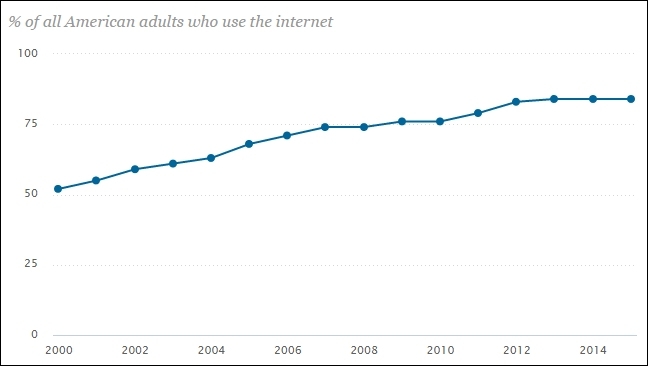
A recent study from Pew Research Center found that 15 percent of adults in the US still don’t use the Internet. That’s unfathomable for many of us but what exactly is the cause?
Pew first began studying the social impact of technology in 2000. At that time, nearly half (48 percent, to be exact) of American adults did not use the Internet. That figure has climbed steadily since the turn of the century until 2012 when adoption began to level off.

Between 2012 and 2013, adoption only increased one percentage point. It has remained unchanged at 84 percent ever since, despite government and social service programs designed to boost adoption.
Analysis shows there are a number of factors that contribute to Internet non-adoption including age, household income, educational attainment, race / ethnicity and community type. Among those, senior citizens are most likely to avoid the web with four in 10 adults age 65 or older doing just that.
A third of adults with less than a high school education don’t use the Internet, a figure that scales down accordingly as the level of education increases. Data also reveals that a quarter of households earning less than $30,000 a year aren’t online.
In addition to those factors, we’re reaching a saturation point meaning everyone that’s interested in getting online (including those that can afford it financially) are already connected.
https://www.techspot.com/news/61550-internet-adoption-unchanged-over-past-three-years-study.html